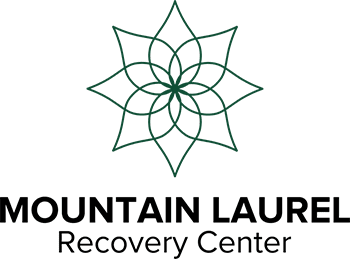 New Year’s Eve can be a problematic holiday for someone in addiction recovery.
New Year’s Eve can be a problematic holiday for someone in addiction recovery.
Instead of being a celebration of anticipation and new beginnings, New Year’s Eve is often filled with temptations and uncomfortable situations. Fortunately, you can make it easier for your friend or family member to ring in the new year sober by making small changes to your celebration.
Create Your Game Plan in Advance
Before you head out to celebrate, privately discuss with your loved one what you can do to help make the holiday less stressful. Your friend or family member might want to skip the party all together and spend a quiet night at home. However, you won’t know any of this unless you ask. Everyone handles recovery differently, so it’s important not to make any unfounded assumptions.
Be Prepared to Intervene
Ask your loved one in recovery to provide you with contact information for his or her AA sponsor, therapist, or other support person and look up the addresses of AA meetings in the area. If you start to sense trouble, use this information to get your loved one back on track.
Create a Code Phrase
It might sound silly, but it can be difficult for someone in recovery to tactfully excuse themselves from a party. One simple way to get around this is to create a code phrase that your friend or family member can use if the celebration starts to feel like too much. Choose something that sounds innocuous enough that the casual listener won’t know what you’re talking about. For example, “Has Becky recovered from her surgery?” would be a good choice if neither of you know anyone named Becky.
Brainstorm Safe Conversation Topics
Nobody enjoys feeling like the subject of idle gossip. If your loved one is worried that others aren’t fully supportive of his or her recovery efforts, try to come up with some safe topics you can use to guide the conversation when it veers into dangerous territory. Sports scores, a favorite TV show, or an interesting book you recently read would all be good choices. Additionally, funny stories about pets and small children are surefire crowd pleasers!
Make New Traditions
The recovery process is about getting a fresh start. Instead of sticking to your same old New Year’s Eve traditions, why not try something new? A board game night, movie marathon, DIY spa experience, or a group bowling trip can help you ring in the new year without creating unnecessary pressure to drink.
Choose Drinks Carefully
Mocktails can be a good way to encourage abstinence, but some people in recovery find that these types of drinks only increase cravings for the real thing. Nonalcoholic beer can create the same problem.
Hot cocoa or apple cider might be better party beverage choices. Add a festive element to these non-alcoholic drinks by creating a drink station with suitable toppings. Serve mini marshmallows, chocolate chips, shredded coconut, whipped cream, and peppermint sticks with the hot cocoa. Offer cinnamon sticks, dried apple slices, sprigs of rosemary, orange slices, and caramel sauce with the apple cider.
Don’t Forget the Snacks
Hunger is one of the key addiction triggers. You can make it easier for your loved one in recovery to make it through the celebration by providing lots of New Year’s Eve hors d’oeuvres and appetizers.
A meat and cheese tray, assorted fresh fruit, and veggies with a yummy dip are crowd pleasers that will help keep your loved one on track. Any recipe using whole grains, walnuts, peanut butter, salmon, plain organic yogurt, or bananas is also a good choice, since these foods have been proven to reduce cravings for alcohol.
Stay Sober Yourself
Consider making the conscious decision to abstain from alcohol yourself. If you’re not drinking, you’re sending a strong message to your loved one that alcohol isn’t required to have fun. Additionally, it’s easier to watch for signs of trouble if your own judgment isn’t impaired.
Remember that Relapse Isn’t the End of the World
If your friend or family member ends up experiencing a relapse, it’s easy to feel like you’ve failed at supporting the recovery process. However, a relapse is just an indication that it’s time to come up with a new strategy. Addiction is a complex disease that requires a customized treatment approach.

 New Year’s Eve can be a problematic holiday for someone in addiction recovery.
New Year’s Eve can be a problematic holiday for someone in addiction recovery.